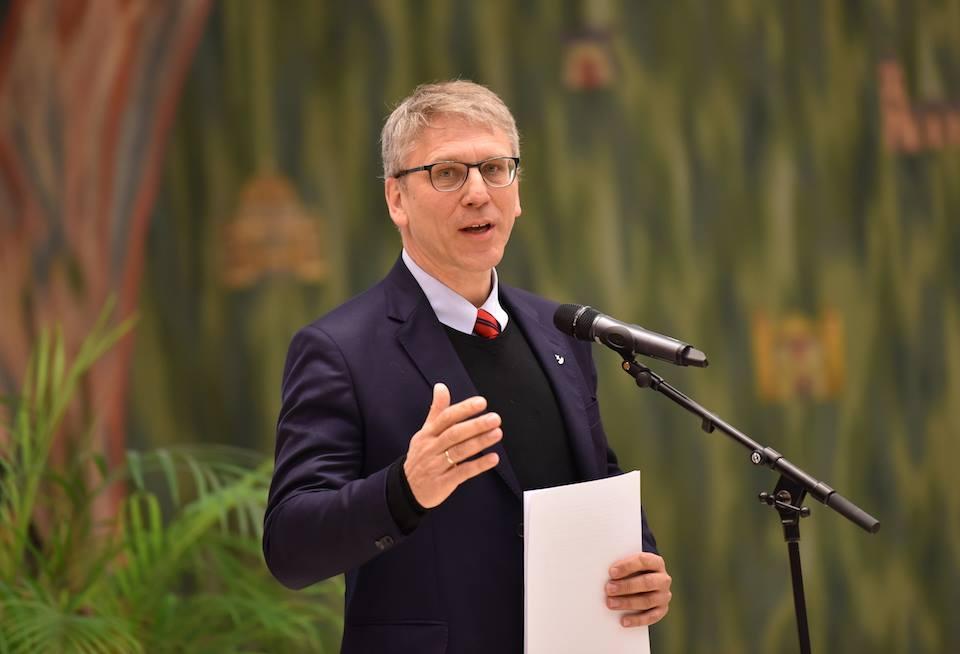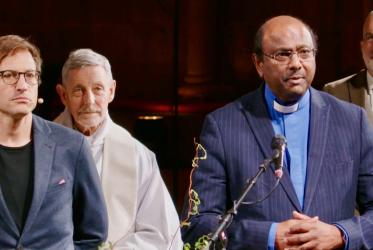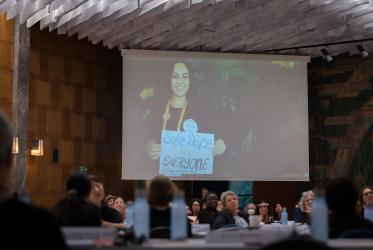As World Council of Churches (WCC) staff gathered for four days of planning this week, they reflected on their work in the world’s many modern contexts and envisioned their role in the future.
In his introductory remarks, WCC general secretary Rev. Dr Olav Fykse Tveit noted that many people across the globe look to the WCC with a question: “What can we contribute as a worldwide fellowship?”
The WCC has adopted a regional focus on Africa for its pilgrimage of justice and peace during 2017, and will focus on Latin America during 2018. Using examples from different countries, Tveit posed questions designed to deepen his staff’s thoughts on how their work advances truth, fights for justice and carries hope to many across the world.
“How can we contribute to see the richness and the strength of the peoples of Africa, their growth in faith and as churches, but also help to focus on justice and peace as our common agenda, on the urgent needs? How can the WCC help to say the truth, how can the WCC as a fellowship with its partners in the ACT Alliance contribute to signs of hope?”
The ACT Alliance - which focuses on humanitarian aid, development and advocacy - is a significant ecumenical partner of the WCC.
Referring to a recent opening of the WCC’s Lenten campaign “Seven Weeks for Water,” Tveit shared the words of the prophet Amos: “Let justice roll down like waters.”
Water is a not only matter of justice, Tveit said, but also “water is also a metaphor of the justice of God. That will come, this way or the other. And the words of Amos continue to give people hope in all the injustices many experience. This is the message of the WCC of today as it has been the last 70 years.”
As the WCC focuses on the ongoing pilgrimage of justice and peace as well its upcoming 70th anniversary, it must be honest in its assessment of the current struggle about the soul of religion and of Christianity, Tveit said. “Is it a faith that can be used to polarize, give privilege to some and not to others, to exclude, to ignore the needs of the others for your own sake?”
Rather, Tveit said, a sense of unity is essential. “The unity among the disciples is needed for the world to believe – to know – that in Jesus we have seen the true God and heard the truth about God,” he said. “We are at the centre. The ecumenical centre, but also at the centre of the most essential questions of the world. What is truth?”
Tveit concluded, „“What does it mean today (and in 2018) to believe together in the one God, who has created the one humanity where everybody is created in the image of God?”
Full speech by WCC general secretary Rev. Dr Olav Fykse Tveit





